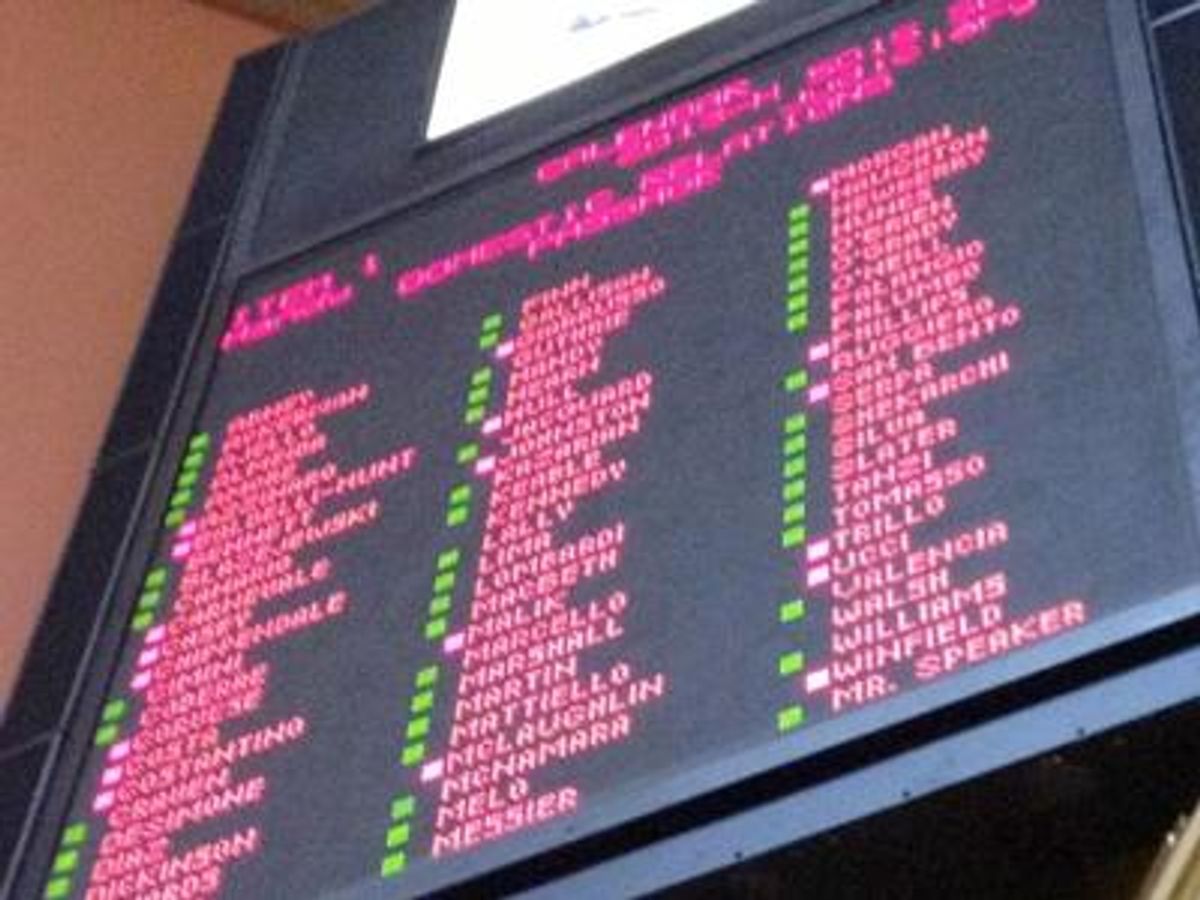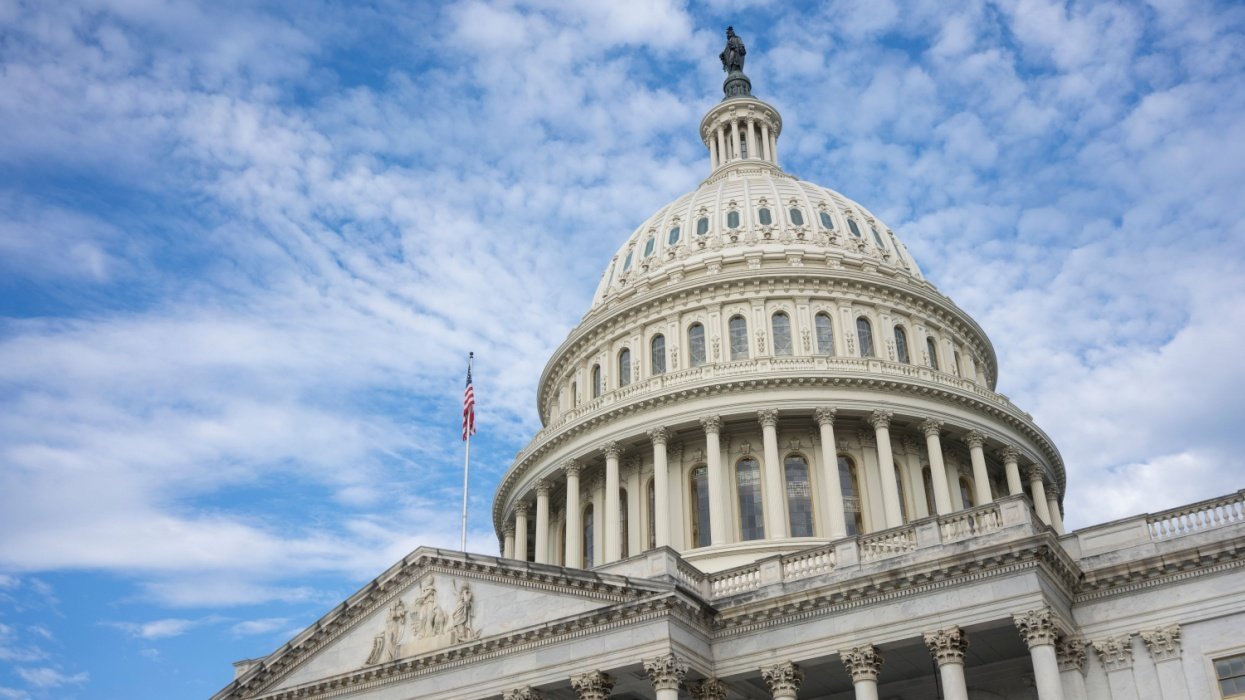Rhode Island moved one big step closer to marriage equality today with the House of Representatives approving the bill.
On Tuesday it had moved out of committee for the first time in all of the previous attempts made during the last 11 years and went to the floor of the state House, where it passed 51-19 today, led by out House speaker Gordon Fox and the bill's author, Arthur Handy. But next up is what is still considered by many to be the legislation's greatest hurdle -- the Senate.
Senate president M. Teresa Paiva Weed personally opposes marriage equality, but she has committed to allow a Senate committee to consider the House's bill and then for it to head to the full Senate should the committee lend its support. The Senate Judiciary Committee is chaired by Michael McCaffrey, who opposes marriage equality, but activists expect the bill will survive the committee's consideration.
Gov. Lincoln Chafee has said he will sign the bill. And Chafee helped to push the bill along by predicting he'd veto a competing idea that would have put marriage equality up for a public referendum. State senator Frank Ciccone has proposed doing just that and is hoping to gain traction needed for his alternative.
Chafee praised the House's vote and a long list of lawmakers credited with making it happen in a statement released immediately afterward.
"There are certain legislative votes that can fairly be characterized as 'historic.' The Rhode Island House of Representatives' overwhelming passage of marriage equality legislation is one such vote," he said, then calling on the Senate to hold a vote.
The LGBT rights coalition Rhode Islanders United for Marriage immediately declared the vote a signal of momentum in their favor.
"Today is a proud and historic day," said campaign manager Ray Sullivan in a statement. "For the first time, the Rhode Island House of Representatives has affirmed that all families in our state should have access to the unique protection and recognition that only civil marriage provides. There is incredible momentum behind this movement -- first a unanimous Judiciary Committee vote, and now two-thirds of members, Republicans and Democrats, stood in support of marriage equality."
(Check Out a Complete Roll Call on the Historic House Vote)

















































































